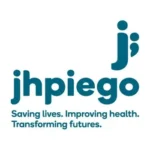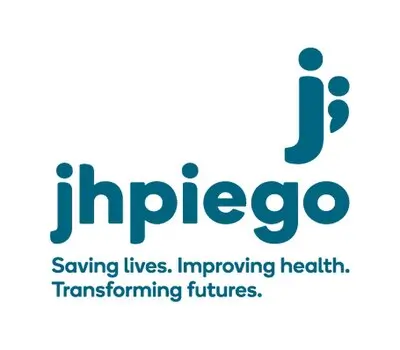
Jhpiego
Overview
G-ANC is a 2-year project sub awarded to Jhpiego by Technical Advice Connect (TA CONNECT) The G-ANC project will provide technical assistance (TA) to Nasarawa and Bauchi State Ministry of Health (SMOH) and State Public Health Care Development Agency (SPHCDA) scaleup and institutionalize Group ANC within maternal and new born health (MNH) services in public health facilities to improve the quality and experience of ANC for pregnant women through the state. The overall project goal is to improve reproductive, maternal, neonatal and child health (RMNCH) outcomes for pregnant women and their babies in Nasarawa and Bauchi State thus helping the State achieve its MNH annual and long-term targets.
Achieving the objectives of the G-ANC project requires a strong and efficient strategic information system that is able to use data to inform programmatic decisions. The right decisions depend on the correct data. This requires the availability and use of correct data at all levels.
G-ANC project implementing and scaling up G-ANC services in Nasarawa and Bauchi state and improving the entire continuum of care from pregnancy till about 1000 days after birth. This will require a proper audit of the data to ensure that G-ANC implements with the correct baseline data. As a result, G-ANC project will conduct full data validation and audit in selected health facilities in in both states for implementation of quality services across the entire continuum of care.
G-ANC will engage 20 data collectors per state to validate RMNCH data from the facility in 10 days. Two lead supervisors will be expected to coordinate the data collectors, harmonize validated data report to the project M&E Advisor. The overall purpose of this consultancy is to collect facility MNCH data preintervention data to serve as a baseline for the facility
Orientation and Training:
- Attend comprehensive orientation and training sessions to understand the project objectives, data collection tools, and ethical considerations.
- Familiarize oneself with the study protocol, data collection instruments, and any relevant guidelines.
Quantitative Data Collection:
- Extract data from relevant registers in assigned health facilities.
- Ensure the completeness, accuracy, and consistency of collected quantitative data.
- Conduct face-to-face interviews and surveys using structured questionnaires with identified respondents, including healthcare providers, facility staff etc
- Utilize electronic data collection tools or paper-based forms as specified by the project for data abstraction/validation.
Quality Assurance:
- Implement quality control measures during data collection to minimize errors and discrepancies by adhering to study protocol and SOPS.
- Regularly check and validate collected data to ensure its reliability.
Ethical Considerations:
- Adhere strictly to ethical guidelines and standards during data collection, ensuring informed consent and confidentiality.
- Report any ethical concerns or issues encountered during data collection promptly.
Communication:
- Maintain open and effective communication with the supervisor and other team members.
- Provide regular updates on progress, challenges, and successes.
Problem Resolution:
- Identify and address any challenges or issues encountered during data collection promptly.
- Seek guidance from the project coordinator or supervisor when faced with complex situations.
Documentation:
- Complete all required documentation accurately, including field notes and any incident reports.
- Ensure that all collected data, both quantitative and qualitative, is securely stored and handed over to the designated project personnel.
Flexibility:
- Demonstrate flexibility in adapting to changes in the data collection plan or schedule as required by the project.
Duty Location
Each data collector will be assigned to selected HFs in LGAs in Nasarawa and Bauchi states
Required qualification
- Post secondary school degree, University Degree is an added advantage
- Previous experience in both quantitative and qualitative health-related data collection.
- Understanding of RMNCH indicators and issues.
- Familiarity with electronic data collection tools (if applicable).
- Strong interpersonal and communication skills.
- Ability to work independently and as part of a team.
How to apply
Jhpiego offers competitive salaries and a comprehensive employee benefits package.
Please apply using this link: https://jobs-jhpiego.icims.com/jobs/5798/data-collectors/job
Applicants must submit a single document for upload to include: cover letter, resume, and references.
We reserve the right to close this vacancy early if a suitable candidate is found
Only shortlisted candidates will receive an invitation for an interview
For further information about Jhpiego, visit our website at www.jhpiego.org
Note: The successful candidate selected for this position will be subject to a pre-employment background investigation.
Jhpiego is an Affirmative Action/Equal Opportunity Employer
Jhpiego, a Johns Hopkins University affiliate, is an equal opportunity employer and does not discriminate on the basis of gender, marital status, pregnancy, race, color, ethnicity, national origin, age, disability, religion, sexual orientation, gender identity or expression, veteran status, other legally protected characteristics or any other occupationally irrelevant criteria. Jhpiego promotes Affirmative Action for minorities, women, individuals who are disabled, and veterans.
#LI-JA1
Deadline: 1-Feb-24

